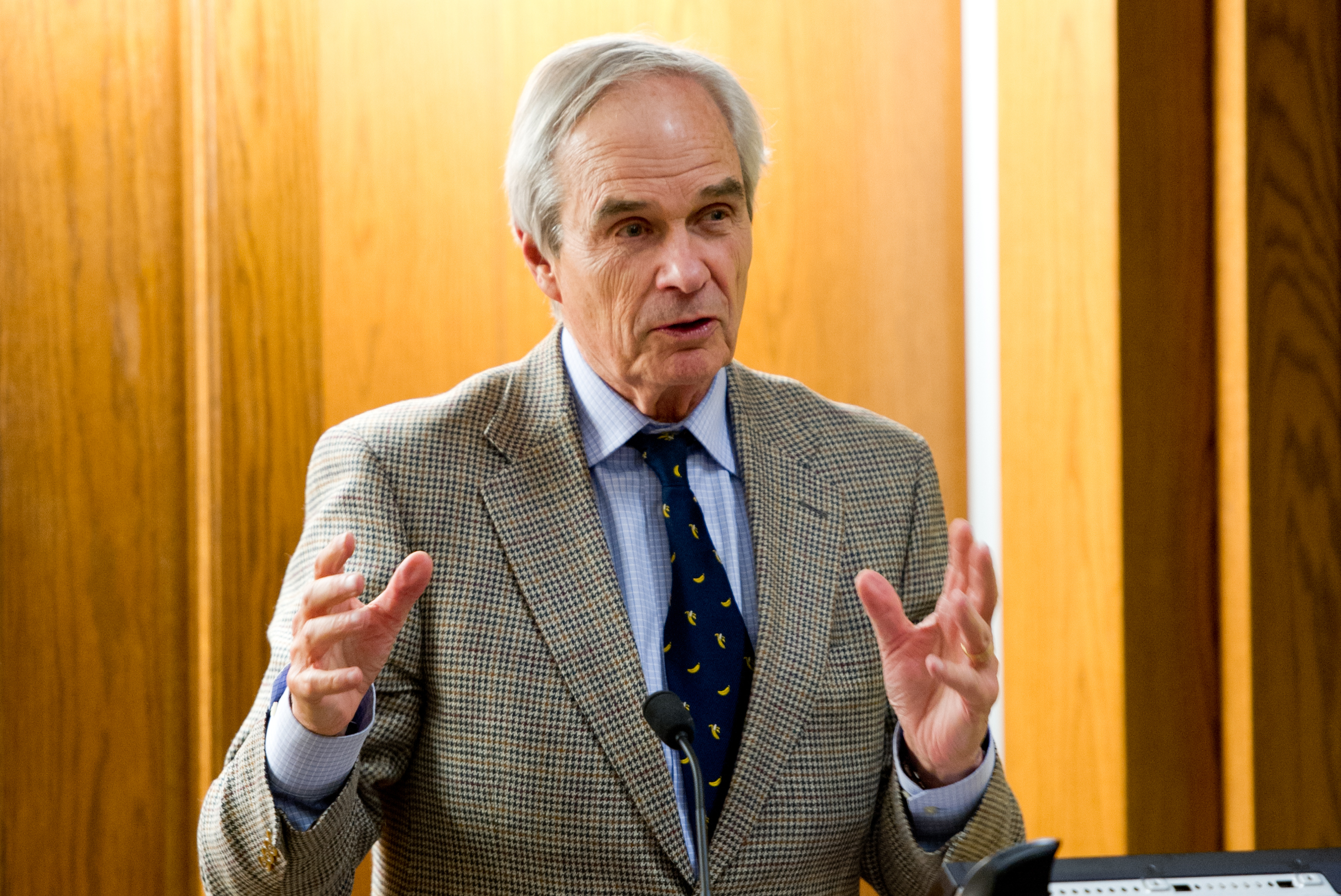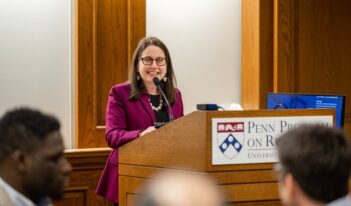
In annual address at Penn Law, ACUS Chairman Paul Verkuil calls for strengthening bureaucrats’ capacities.
Whatever your stance on the size of the modern regulatory state, the fact is that society needs capable people to keep government running, no matter what its size may be.
Speaking earlier this year at the University of Pennsylvania Law School, Paul R. Verkuil, Chairman of the Administrative Conference of the United States (ACUS), argued that political leaders across the ideological aisle should pay more attention to recruiting and retaining those people who are best able to get the challenging job of governing done. He argued that we must “save the bureaucrats.”
Chairman Verkuil noted that many states now use “at-will” employment when filling government positions, and that many federal agencies increasingly use private contractors to fulfill important governmental responsibilities. Although he recognized that there are times when “at-will” employment and outsourcing may be beneficial, Verkuil argued that government could work better if it protects and keeps more bureaucrats running regulatory and other governmental programs.
Chairman Verkuil delivered his remarks at the 2015 Regulation Lecture sponsored by the Penn Program on Regulation.
Verkuil serves as the head of a small but important federal body: ACUS, an independent federal agency that solicits expert research and makes recommendations to other federal agencies about how to improve administrative practices and processes. Its aim is to make government better, more transparent, and more efficient. Or, in the words of President Barack Obama, “ACUS…is designed to make the government work better.”
Despite many heralded ACUS recommendations that led to improvements in government processes over the years – and despite support from legal luminaries as diverse as Justice Antonin Scalia and Justice Stephen Breyer – the Administrative Conference lost its government funding in 1995.
In 2009, however, ACUS was reinstated and its funding renewed. President Obama appointed Verkuil to lead its second generation. Since his Senate confirmation in 2010, Chairman Verkuil has rebuilt and revitalized ACUS. In just a few years’ time, the new ACUS has completed dozens of research projects and succeeded in bringing governmental managers together to identify many new ways to make government work better for the American people.
In addition to playing a pivotal role in reviving ACUS, Verkuil has made numerous contributions to legal education and academia throughout his preeminent career. A leading administrative law scholar, he has published more than sixty-five academic articles as well as a number of books, the most recent being Outsourcing Sovereignty. He served as the President of the College of William & Mary, and he has served as the dean of the law school at Tulane University and of the Benjamin N. Cardozo School of Law at Yeshiva University.
The Regulatory Review is pleased to feature Chairman Verkuil’s keynote address delivered at Penn Law. His remarks lead a four-part series on Good Government Requires Good People. This series also features responses to Chairman Verkuil’s keynote by, respectively, Professor John Dilulio of the University of Pennsylvania and Professor David Lewis of Vanderbilt University. The series concludes with a coda offered by Chairman Verkuil.
The Regulatory Review sincerely thanks Chairman Verkuil for delivering the 2015 Regulation Lecture at Penn Law and for allowing us to feature his remarks here.
Save the Bureaucrats
September 8, 2015 | Paul R. Verkuil, Administrative Conference of the United States
Making government more effective is a goal that resonates on both sides of the political aisle. When government fails to meet that goal, it is often bureaucrats who shoulder the blame in politicians’ and the public’s minds. In this essay, ACUS Chairman Paul Verkuil suggests that blaming bureaucrats misses the mark. As the problems associated with delegating crucial government functions to contractors and replacing civil servants with “at-will” employees become clear, it turns out we actually need more well-qualified bureaucrats – not fewer.
Save the Bureaucrats…from the Politicians
September 9, 2015 | John J. DiIulio Jr., University of Pennsylvania
The popular narrative of an outsize bureaucracy staffed by inefficient workers does not reflect the reality of government today, according to John Dilulio, whose contribution to this series paints a picture of a federal civil service that is “….overloaded, not bloated.” When the government fails, it is often at least in part because there are too few civil servants to oversee the increasing number of for-profit private contractors to whom the federal government has outsourced many of its most important functions.
Policymaking by (Bad) Anecdote
September 10, 2015 | David E. Lewis, Vanderbilt University
Imagine a business school textbook that covers only failed businesses. Imagine a business professor describing all that can go wrong in the private sector, but not how to get things right. Now, imagine a graduate of that school, intent on avoiding pitfalls, but unsure about how to create a successful company. When it comes to government, this is often the approach that policymakers take. In this essay, David Lewis discusses the flaws of that approach. Government does fail – but it also gets a lot right, and policymakers should focus on identifying and replicating its successes.
Restoring Civil Servants to their Proper Role
September 11, 2015 | Paul R. Verkuil, Administrative Conference of the United States
In the final essay of this series, Chairman Verkuil reflects on his experience during Hurricane Katrina as a witness to the response by government at all levels. Consistent with the theme of Lewis’ essay, Verkuil dwells not on government’s failings, but on the region’s resilience in the face of crisis, and the positive steps that the federal, state, and local governments have been taking to ensure a better response to the next disaster. To carry out this work, government needs good people working under strong agency leadership. Reforming the civil service must be a part of the conversation about making government work better.
The full text of Chairman Verkuil’s remarks, Save the Bureaucrats, can be downloaded here.




